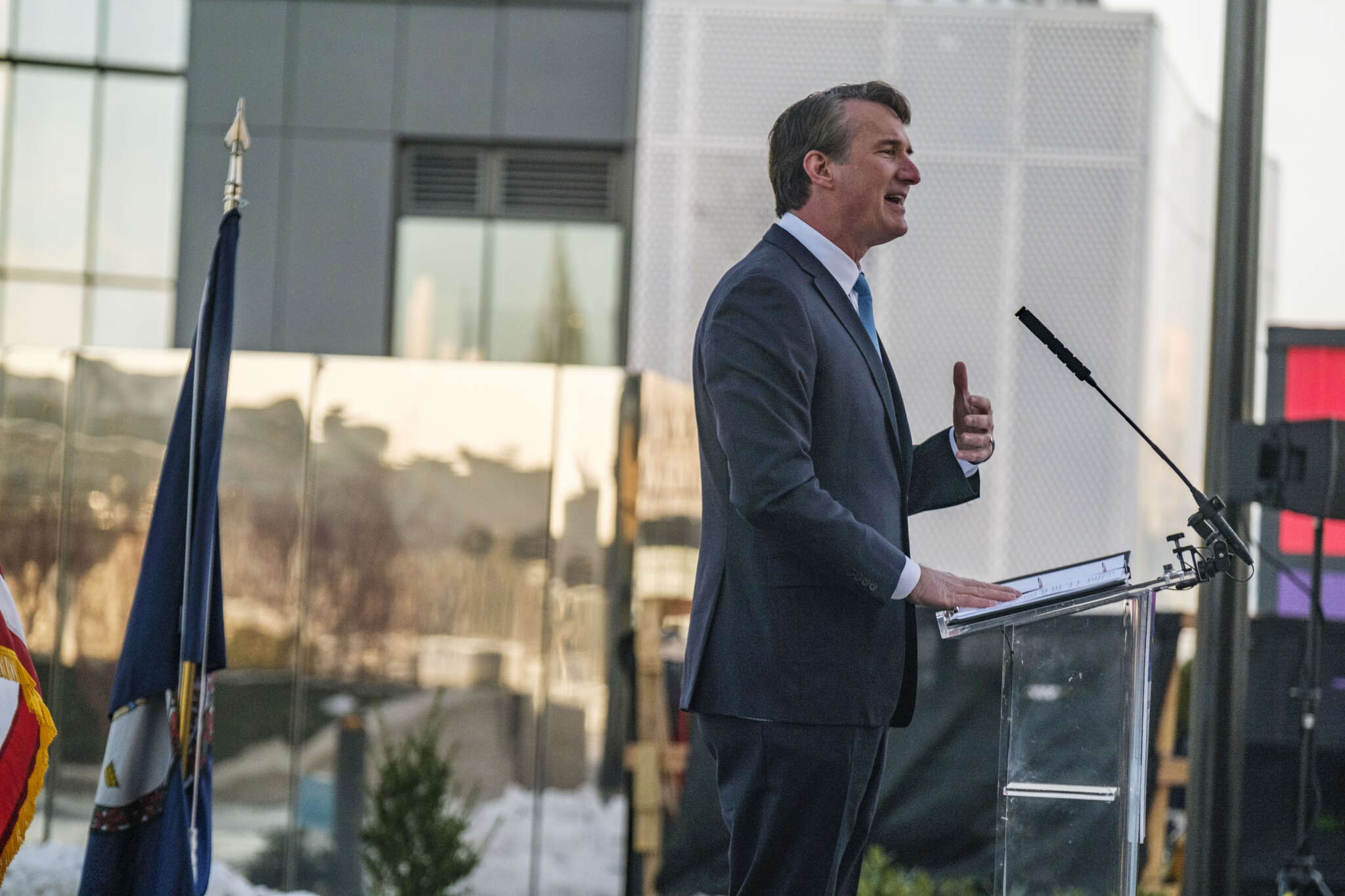
A bill to raise Virginia’s minimum wage got the ax in Richmond despite the support of three Fairfax County state senators.
Gov. Glenn Youngkin (R) vetoed legislation on March 28 that would’ve increased the minimum wage from $12 to $15 an hour by 2026. Sens. Jennifer Boysko, Saddam Salim and Adam Ebbin, who all represent parts of Fairfax County, were among several Democrats to sponsor the bill.
The governor also struck down a bill sponsored by Ebbin (D-30) that would have legalized the sale of recreational marijuana in Virginia.
Ebbin said he was “disappointed but not surprised” by the decisions and sees no reason to believe Youngkin will change his mind in future years.
“We need a Democratic governor to sign these bills,” the senator said.
The minimum wage bill would’ve boosted the rate to $13.50 an hour starting Jan. 1, 2025 before reaching the full $15 in 2026. Youngkin argued that his veto protects small businesses in parts of Virginia outside of the D.C. suburbs.
“The free market for salaries and wages works,” the governor said. “It operates dynamically, responding to the nuances of varying economic conditions and regional differences. This wage mandate imperils market freedom and economic competitiveness.”
A minimum wage increase “may not impact Northern Virginia, where economic conditions create a higher cost of living,” Youngkin added.
Salim (D-37), whose district includes Tysons, Vienna and the cities of Fairfax and Falls Church, disputed Youngkin’s claims, calling the veto “deeply disappointing and detrimental to the well-being of workers and struggling families across Virginia.”
“Our current minimum wage is not a living wage, particularly here in Northern Virginia,” he said. “I believe that every worker deserves a living wage. By rejecting this bill, the governor is essentially endorsing policies that grow economic inequality and hardship.”
Democrats in the Virginia Senate will continue to fight for a minimum wage increase next legislative session, Salim said.
Boysko (D-38), who represents Reston, Herndon, Great Falls and McLean, argued that the current minimum wage is part of a “cruel system” that forces many people to “scrounge for benefits” from the state and nonprofits, contributing to Virginia’s workforce shortage.
“Many businesses are not paying a living wage,” Boysko said. “If employers cannot figure out how they would live on what they pay their employees, we have an economic problem and a moral problem.”
For the marijuana bill veto, Youngkin pointed to adverse health effects associated with the substance. He argued that even medical cannabis has had “perverse and dangerous consequences” akin to opioids.
“Attempting to rectify the error of decriminalizing marijuana by establishing a safe and regulated marketplace is an unachievable goal,” he said. “The more prudent approach would be to revisit the issue of discrepancies in enforcement, not compounding the risks and endangering Virginians’ health and safety with greater market availability.”
Virginia became the first Southern state to legalize marijuana possession in 2021 after then-governor Ralph Northam, a Democrat, signed a bill intended to set the stage for recreational sales to adults starting in 2024. Proponents characterized the move as a necessary corrective to address racial disparities in the enforcement of marijuana crimes.
Ebbin, whose district includes Bailey’s Crossroads and Seven Corners, argued that marijuana is less harmful than alcohol and that preventing its legal sale only encourages people to turn to illegal sources.
“It’s an adult choice that some adults make, and we don’t need a black market,” he said.

In the latest round of action on bills, Virginia Gov. Glenn Youngkin signed 100 bills passed by the Virginia General Assembly, including one to protect Virginians from unlawful discrimination, hate crimes and antisemitism. The governor vetoed four others, including one to create civil penalties for shop owners who fail to advertise they are selling invasive plants that could harm other species.
Among the 100 bills signed is a measure that will codify a recommendation by the Commission to Combat Antisemitism that Virginia revise its laws to better protect Jewish citizens from hate crimes, along with Muslims, Sikhs and other ethnic-religious groups.
Youngkin said the legislation aligns with one of his top priorities: combating antisemitism.
“As the first state to weave religious freedom into the fabric of our nation, Virginia is leading once again and sending a clear message that Virginians should not be the victim of a crime simply because of their religion, race, or ethnicity,” the governor said in an April 2 press release.
Sen. Bryce Reeves, R-Spotsylvania, and Del. Dan Helmer, D-Fairfax, carried the legislation, Senate Bill 7 and House Bill 18.
“I’m thankful for the governor’s signature and the bipartisan co-patrons of this important bill,” said Reeves in a statement. He added that legislation outlawing antisemitism isn’t just about protecting a particular group, but about “defending the fundamental values of equality, justice, and human dignity for all.”
Helmer, a descendant of Holocaust survivors and a Jewish man whose children “confronted antisemitism” in school, Helmer said the legislation is important to him.
“Hate has no place in our communities,” Helmer said in a statement, adding that he is grateful for the governor’s signature to “protect people of every ethnicity across the commonwealth.”
Other interesting pieces of legislation the governor signed into law include House Bill 143, which directs the Virginia Department of Transportation to create a publicly-accessible utility work database and map that details projects within state-maintained areas, excluding emergency maintenance and services to private properties. Another measure, House Bill 322, will create a Cosmetology Compact, which will allow people to be licensed to provide barbering, hair styling and other cosmetic services in Virginia and other states that join the compact initiative.
Vetoed legislation
The governor also vetoed four bills that would have required the state to adopt model public education policies on climate change and environmental literacy, permitted college instructors to request non confidential garnishment data for research purposes, and created penalties for shop owners who fail to identify invasive plants they sell.
In explaining why he rejected the bill on adopting model policies for climate change, the governor said the measure is already included in the Standards of Learning for students, and the proposal “imposes a significant and redundant task” on the Department of Education and the Board of Education. Read More
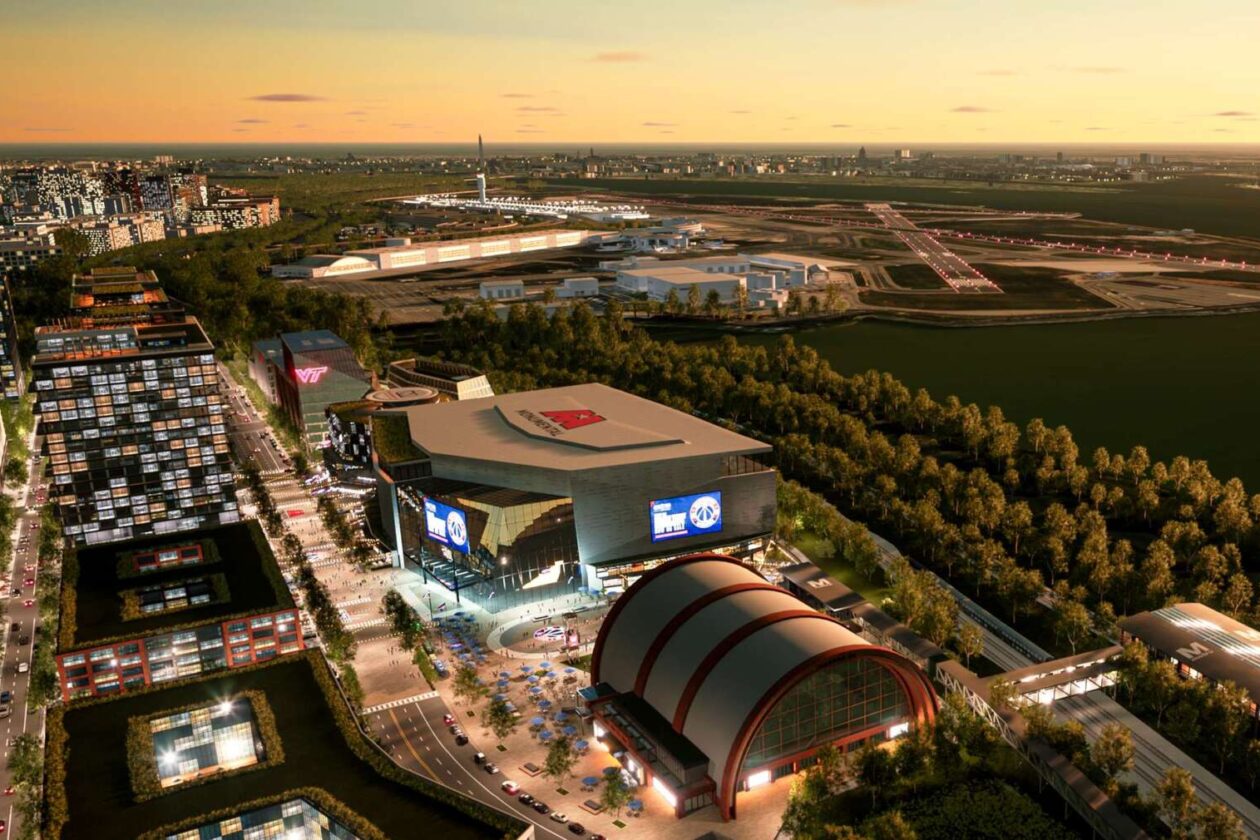
The deal to bring the Washington Capitals and Wizards to Alexandria’s Potomac Yard is officially dead, and the developer says suggestions that an arena could be built in Tysons instead were the final nail in the coffin.
Alexandria City officials revealed yesterday (Wednesday) that they had ended negotiations with developer JBG Smith, Wizards and Capitals owner Monumental Sports & Entertainment, and other stakeholders for a stadium in the proposed Potomac Yard Entertainment District. About an hour later, Monumental owner Ted Leonsis and D.C. Mayor Muriel Bowser announced that the two professional sports teams will stay at Capital One Arena in Chinatown after all.
After joining Leonsis and city leaders in December to tout the Wizards and Capitals’ planned move across the Potomac River, Virginia Gov. Glenn Youngkin lamented that “personal and political agendas” at the state level torpedoed a significant economic opportunity, while the city expressed disappointment in how discussions between Youngkin and the General Assembly unfolded.
However, JBG Smith CEO Matt Kelly pointed to a different culprit, claiming that “special interests” seeking to combine a sports arena with a casino in Tysons had “complicated and ultimately blocked” the Potomac Yard negotiations.
Despite our best efforts, this project was unable to get a fair hearing on its merits with the Virginia Senate. It is now clear that our efforts may have been complicated and ultimately blocked, in part, by special interests seeking to move the Monumental arena to Tysons Corner and to combine it with a casino. The Washington Post and other outlets have reported on this scheme and the hundreds of thousands of dollars, enormous sums in Virginia politics, of political contributions associated with it — a large portion of which were directed to key senate leaders. When one follows the money, the implications are deeply troubling for Virginia and for the future of transparency in economic development pursuits, especially those that seek certainty through the now damaged MEI legislative process.
The Washington Post reported on Sunday (March 24) that Senate Majority Leader Scott Surovell (D-34), hopeful Fairfax County casino developer Comstock CEO Christopher Clemente and political consultant Ben Tribbett, who counts both Surovell and Comstock as clients, had raised the idea of moving the Wizards and Capitals to Tysons instead of Alexandria with Monumental executives.
According to the Post, Leonsis and the other Monumental executives quickly rejected the proposal, which also didn’t appeal to Youngkin.
State Sen. Dave Marsden (D-37), who patroned the ultimately postponed bill to make Fairfax County — specifically a site in Tysons along Metro’s Silver Line — eligible for a casino, says he was never involved in “any serious talk” about combining the casino with a Monumental arena. The idea was “casually talked about” during the General Assembly’s session, which ended on March 9, but he never viewed it as a legitimate possibility.
“I think that was a last-minute thing people threw out there,” he told FFXnow. Read More

State lawmakers punted consideration of a casino in Fairfax County to next year, but that hasn’t stopped some proponents from seeking to assist in the divisive plan to bring the Washington Wizards and Capitals to Northern Virginia, whose odds of a comeback win are looking slim.
Senate Majority Leader Scott Surovell, who represents Fairfax County’s Richmond Highway corridor, recently pitched the idea of bringing both a casino and the sports arena to Tysons to a representative of Monumental Sports & Entertainment, which owns the basketball and hockey teams, the Washington Post reported on Sunday (March 24).
According to the Post, Surovell dropped the idea after Monumental President of External Affairs Monica Dixon “immediately” rejected it, but Christopher Clemente, CEO of the aspiring casino developer Comstock, and Ben Tribbett, a prominent consultant whose clients include Comstock and Surovell, “continued shopping the idea last week.”
The suggestion of combined arena/casino site in Tysons emerged as Monumental’s much-hyped plan to move the teams from D.C. to Alexandria’s Potomac Yard flailed for support. The Virginia General Assembly adjourned on March 9 without including funding for a state authority to finance the $2 billion entertainment district in their budget proposal, and at least one Alexandria City elected official withdrew her endorsement of the project.
Clemente told the Post that a joint development could “enhance financing options for the arena” by using tax revenue generated by the casino to guarantee bonds that would pay for the stadium, but Potomac Yard developer JBG Smith’s CEO, Matt Kelly, noted the deal could be used to evade Virginia’s requirement that casinos get approved by voter referendum.
Like the arena, Fairfax County’s potential casino is envisioned as part of an entertainment district, according to State Sen. Dave Marsden, who sponsored legislation to make the county eligible for a gambling establishment this past session and in 2023.
After vocal opposition from local residents and some officials, though the county board stopped short of taking an official position, a Senate committee voted on Feb. 6 to continue this year’s bill to 2025 to allow for more study and public engagement.
The combined facility proposal appears to be dead on arrival, with Monumental owner Ted Leonsis and Virginia Gov. Glenn Youngkin reportedly expressing “disgust” and “no interest,” respectively. But hypothetically, would you support the Wizards and Capitals calling Fairfax County home? Would it alter your stance on a casino?
Rendering courtesy JBG Smith
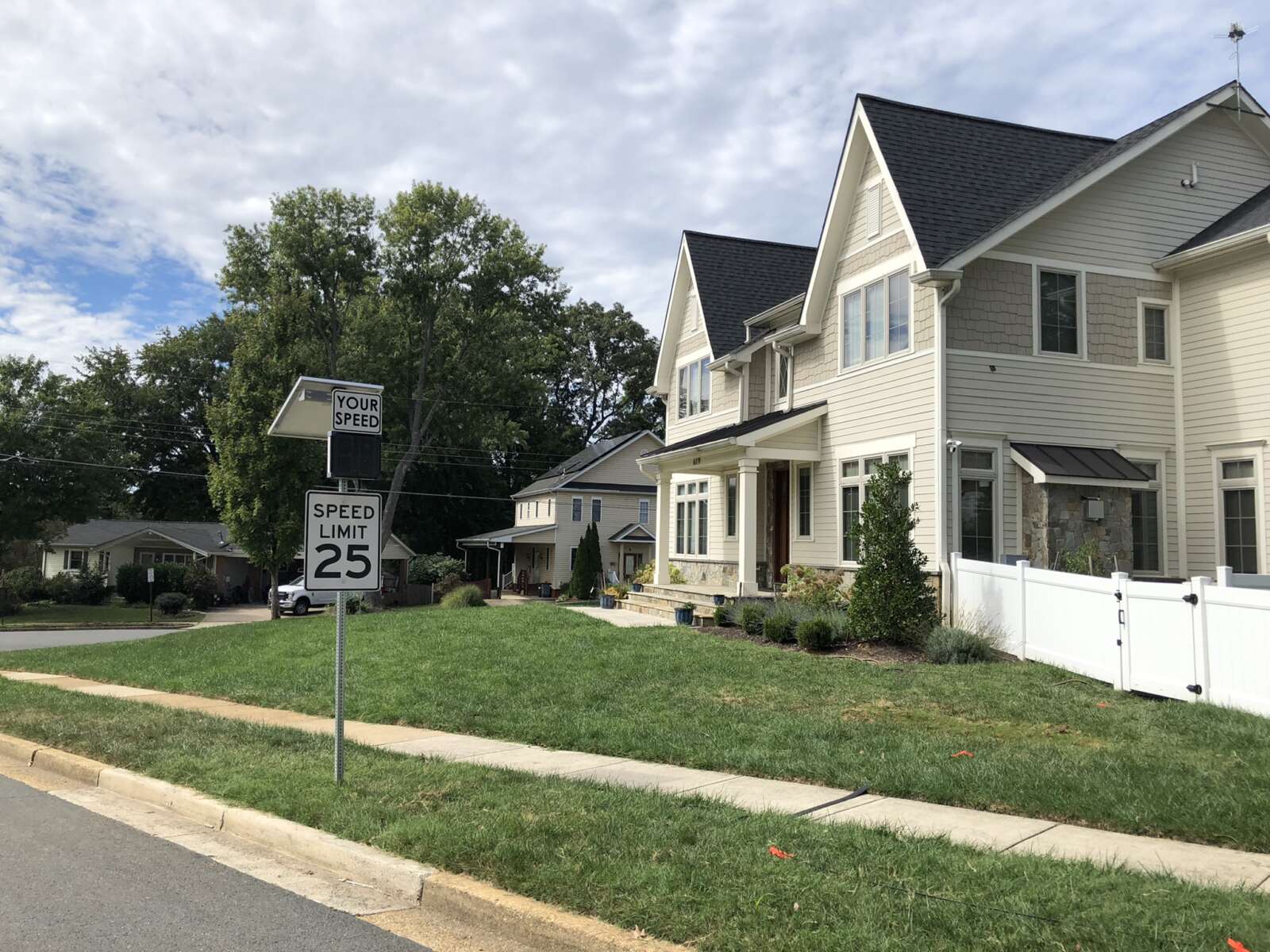
The Virginia General Assembly passed a measure three years ago allowing local governments to decrease roadway speed limits in their localities to as low as 15 mph. But recently, lawmakers found that the Virginia Department of Transportation denied seven of eight speed limit decrease requests, because, by state law, only the Commissioner of Highways can authorize changes on state-maintained roads.
Earlier this month, legislation advanced that would expand a locality’s speed-reducing authority to roadways within a business or residence district, including state-owned highways.
The number of requests represent a small fraction of the local governments in Virginia, including the 190 towns and 39 independent cities in the commonwealth, according to data from the U.S. Census. For the localities that are seeking to reduce speeding, though, the limits of the 2021 legislation are a challenge.
“Everybody can concede that there’s an issue here, but we have very little authority to do anything about it,” said Mayor Roger Vance, who represents the Town of Hillsboro, which was denied their request to lower the local speed limit to 20 mph last year.
The 2021 legislation did not extend localities’ speed reducing power to state-owned highways, which typically run through some towns like Middleburg and Hillsboro.
As proposed, the new bill would require local governments to conduct engineering and traffic studies as part of any effort to change the speed limit, post “lawfully placed” signs showing the reduced speed limit and notify the commissioner of the change.
The bill nearly failed in the Senate in February after Lt. Gov. Winsome Earle Sears split a tie vote, but it was reconsidered successfully and sent to Gov. Glenn Youngkin for approval.
Del. Betsy Carr, D-Richmond, the legislation’s sponsor, said she is working with the governor’s administration to ensure Youngkin signs her bill into law, but it could require an amendment.
Representatives from the Virginia Municipal League and Virginia Association of Counties, representing local governments in the commonwealth, said their members supported this bill.
“We firmly believe that this enhanced authority serves as an invaluable addition to our existing toolkit for implementing crucial safety measures,” said James Hutzler, government relations associate for VACO, in a statement. “With this legislation in place, counties will be empowered to take proactive steps towards safeguarding the well-being of our communities.” Read More

Hopes that Gov. Glenn Youngkin might sign a bill legalizing retail sales of marijuana in Virginia faded fast this week as Democrats blocked one of the governor’s top priorities: the plan to bring a professional sports arena to Northern Virginia.
As recently as Wednesday, according to multiple Capitol sources, the cannabis bill was being raised in closed-door budget talks with the governor as one of several Democratic priorities that could conceivably have been part of a package deal with the arena.
But the prospects of a grand policy bargain appeared to collapse Thursday as Democrats revealed a budget proposal without Youngkin’s arena plan, prompting the governor to say he was less inclined to look favorably on Democratic priorities. In a news conference (link added by FFXnow) on the Capitol steps, Youngkin said the arena deal Senate Democrats rejected involved up to 30,000 jobs and $12 billion in economic impact.
“And, bluntly, you want to talk about putting a cannabis shop on every corner?” Youngkin said. “I don’t quite get it.”
The governor said several other topics had been part of an “overall discussion” with Democrats. However, he suggested the rejection of an economic development project that could’ve drawn bipartisan support isn’t going to make him more likely to approve bills that passed mostly along party lines.
“I think this really sets us meaningfully back,” Youngkin said.
Del. Paul Krizek, D-Alexandria, a key sponsor of the marijuana proposal, said hopes for the bill were not high.
“As those great philosophers Tommy Chong and Cheech Marin would say, ‘It’s up in smoke,’” Krizek said.
Senate Majority Leader Scott Surovell, D-Fairfax, pointed to Youngkin’s comments on cannabis as evidence that it’s the governor who’s refusing to budge on issues that have popular support.
“He just basically flat out said one of our biggest priorities he’s not willing to consider,” Surovell said. “This governor wants to set the terms of every single negotiation as if he’s the sole arbiter of what’s reasonable in a bipartisan environment. That’s just not how it works. … If he wants something, he’s got to give us something.”
Youngkin can’t veto the marijuana bill immediately, because it technically hasn’t been sent to him yet. After this week’s developments, it may only be a matter of time. Youngkin said again Thursday that he doesn’t have “any interest” in greenlighting a retail marijuana market during his four-year term.
He has just under two years remaining, and if Democrats retake the Executive Mansion in 2025, the bill sent to Youngkin this year could potentially be the starting point for future legislative efforts. Read More
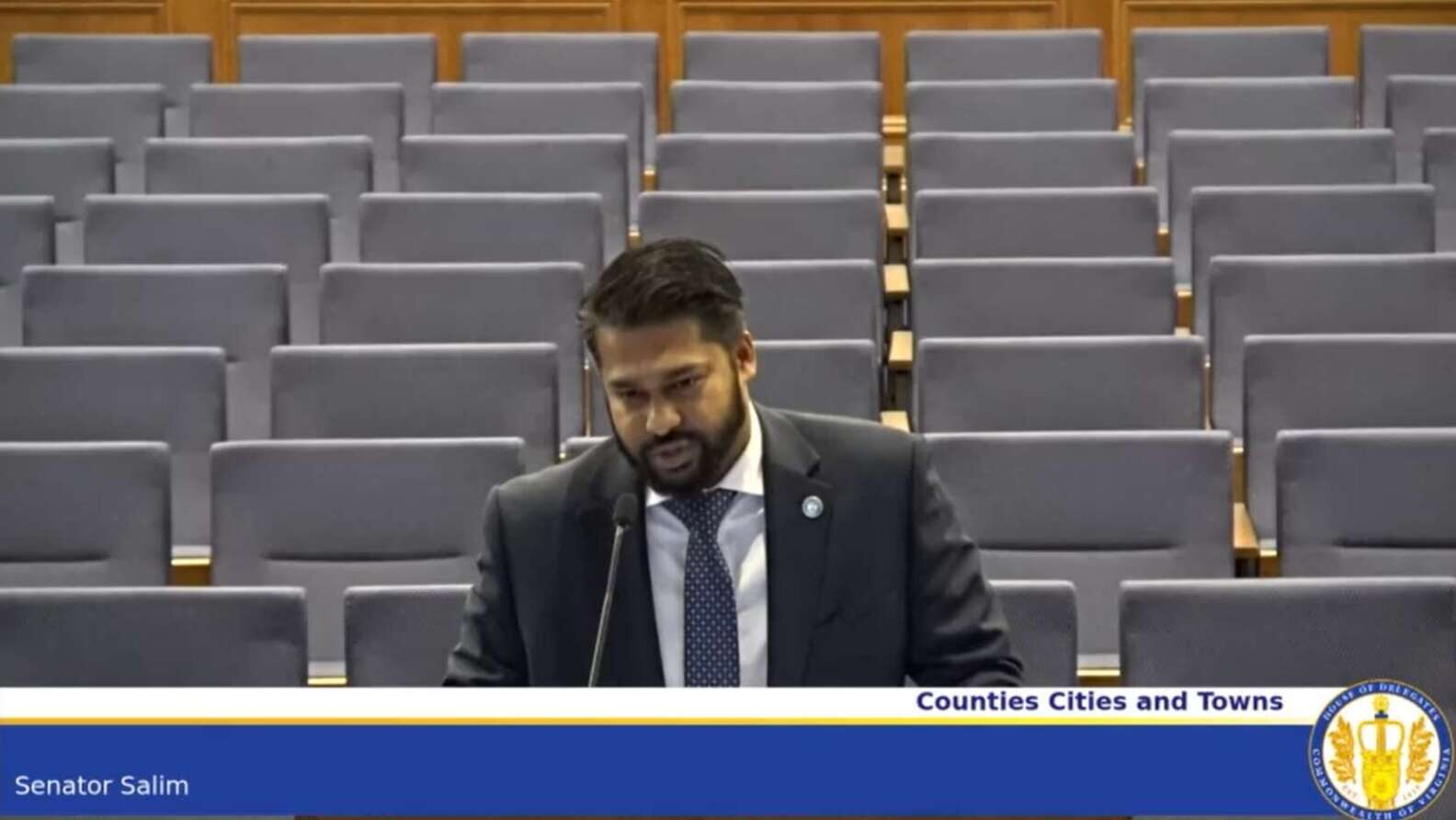
Final consideration of state Sen. Saddam Salim’s (D-37) proposal to expand the availability of accessory housing units in Virginia will wait until next year.
A Virginia House of Delegates committee voted on Feb. 23 to table Senate Bill 304, until 2025, suggesting that the delay would give Salim and other legislators more time to refine the bill and collect data on existing local policies allowing accessory dwelling units (ADUs), which are known in Fairfax County as accessory living units (ALUs).
In his first term representing the 37th Senate District, which includes Tysons, Vienna, Oakton, Merrifield and the cities of Fairfax and Falls Church, Salim proposed requiring localities to allow ALUs in residential districts “by right,” meaning the property owner wouldn’t need a special permit that often comes with added fees and public hearings.
Though the bill passed the Senate 22-18 on Feb. 9, it was still being revised up until the House Counties, Cities and Towns Committee’s meeting on Feb. 23. The committee didn’t hear public testimony, but its chair, Del. Candi Mundon King (D-23), noted that seven people had signed up to oppose the bill and three to support it, on top of “extensive” feedback at a subcommittee meeting on Feb. 22.
“There is no concern about accessory dwelling units in concept. I think you saw unanimous support,” Del. Briana Sewell (D-25), who chaired the subcommittee, said. “The issue is fine-tuning the language, and the fact that you even brought forth an amendment today showcases that the work has not been complete.”
Also sometimes known as “granny flats,” ADUs or ALUs are independent, secondary residential units located on the same lot as a single-family house. They can either be attached to the primary dwelling or standalone structures, but as defined by Salim’s bill, they have their own living, bathroom and kitchen space.
Though he doesn’t seem them as a solution to local affordable housing needs, Salim says accessory units are still a useful option for residents who might otherwise be priced out of their neighborhood, including seniors and college students.
“Numerous constituents, including teachers, firefighters, nurses, and other essential workers, have expressed concerns about being priced out of our community,” he said in a statement to FFXnow. “Among the primary impediments to ADUs are local requirements for Special-Use Permits, which substantially inflate costs and delay construction timelines, rendering them financially unfeasible in many cases.”
When talking before the House committee, he recalled how he and his family had to live in other people’s basements after they immigrated to the U.S. from Bangladesh in the early 2000s.
“ADUs would’ve been something that would’ve helped us temporarily, whether it’s a room in someone’s house or a configuration of a bathroom, a kitchen and a bedroom that comes together,” he said. “…Living in those basements allowed us to apply for affordable housing. That took about three and a half years.” Read More
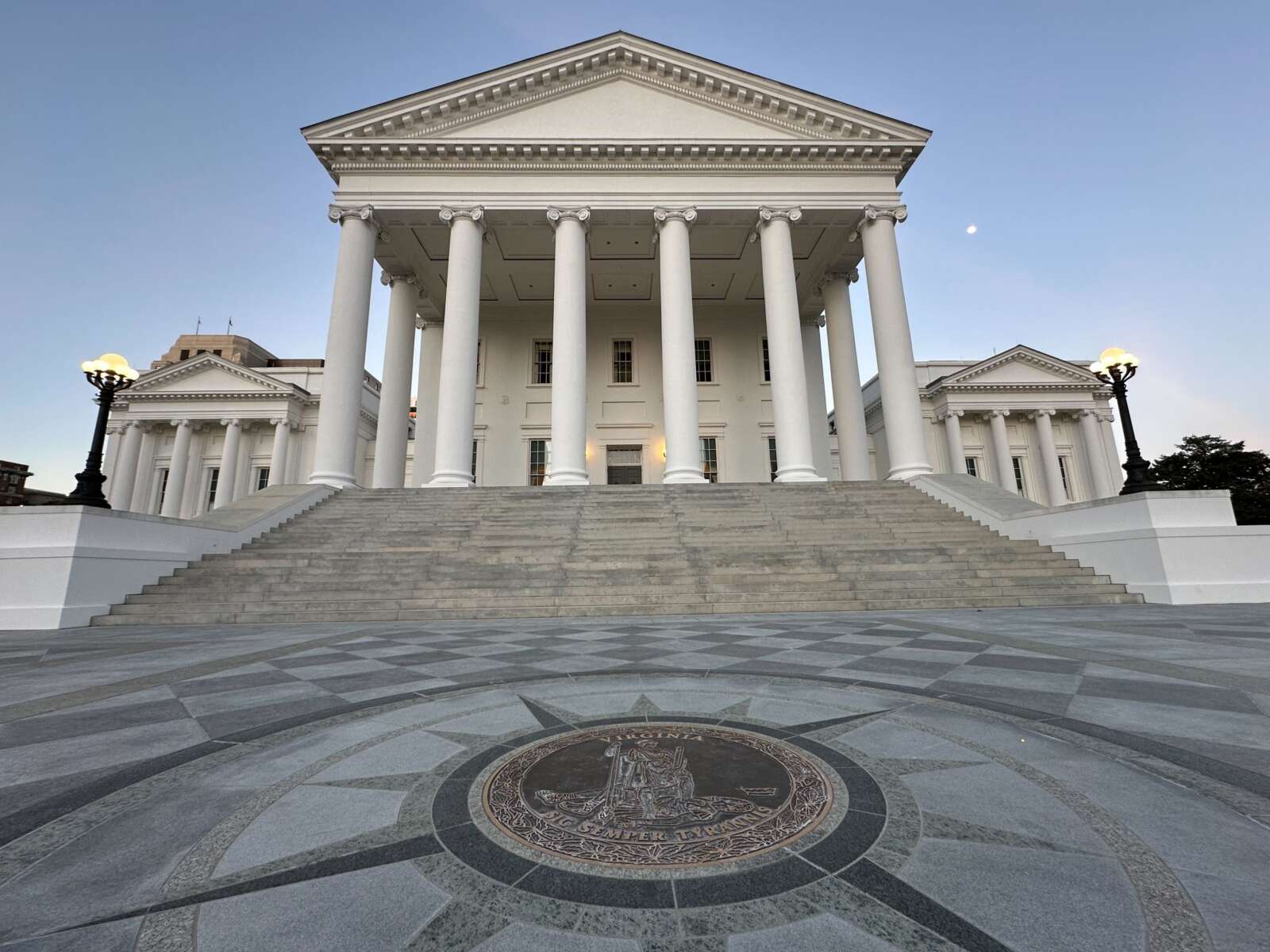
Without taking a recorded vote, a Virginia House of Delegates committee on Wednesday [Feb. 27] again blocked legislation that would bring the state in line with the rest of the country by banning the personal use of campaign funds.
By a voice vote, the House Appropriations Committee chose to continue the bill until the 2025 General Assembly session.
“It is our hope that during the course of the 2025 session that both Senator Boysko and Delegate Simon will be able to come back to us and bring us a piece of legislation that not only do I want to see passed out but the speaker would like to see passed out as well,” said House Appropriations Chairman Luke Torian, D-Prince William.
He was referring to Sen. Jennifer Boysko, D-Fairfax, and Del. Marcus Simon, D-Fairfax, who were spearheading efforts (link added by FFXnow) to craft a law that would clarify campaign funds have to be used for legitimate political activity and cannot be used on personal expenses such as mortgage payments, school tuition, vacations, clothing and cars.
Torian’s committee did not docket Simon’s bill earlier in the session. Boysko’s bill had passed the state Senate 35-4, and Wednesday’s hearing was a do-or-die moment for her version as lawmakers prepare to wrap up the session [this] week.
Del. Mark Sickles, D-Fairfax, said he would “reluctantly” second the motion to punt the bill to 2025.
The proposed ban, which has been blocked for years, is pitched as a basic good government measure that would prevent politicians from funding their personal lives with money given to them by corporations and wealthy donors.
Previous promises to work on the issue at a later date haven’t been borne out.
In 2021, the General Assembly created a special subcommittee to study campaign finance reform, and the personal use ban was considered one of its top priorities. That subcommittee barely met in 2021. The legislature re-upped it for another year, but the panel never held a meeting in 2022.
The subcommittee — which never produced a final report — is now listed as inactive.
This article was reported and written by the Virginia Mercury, and has been reprinted under a Creative Commons license.
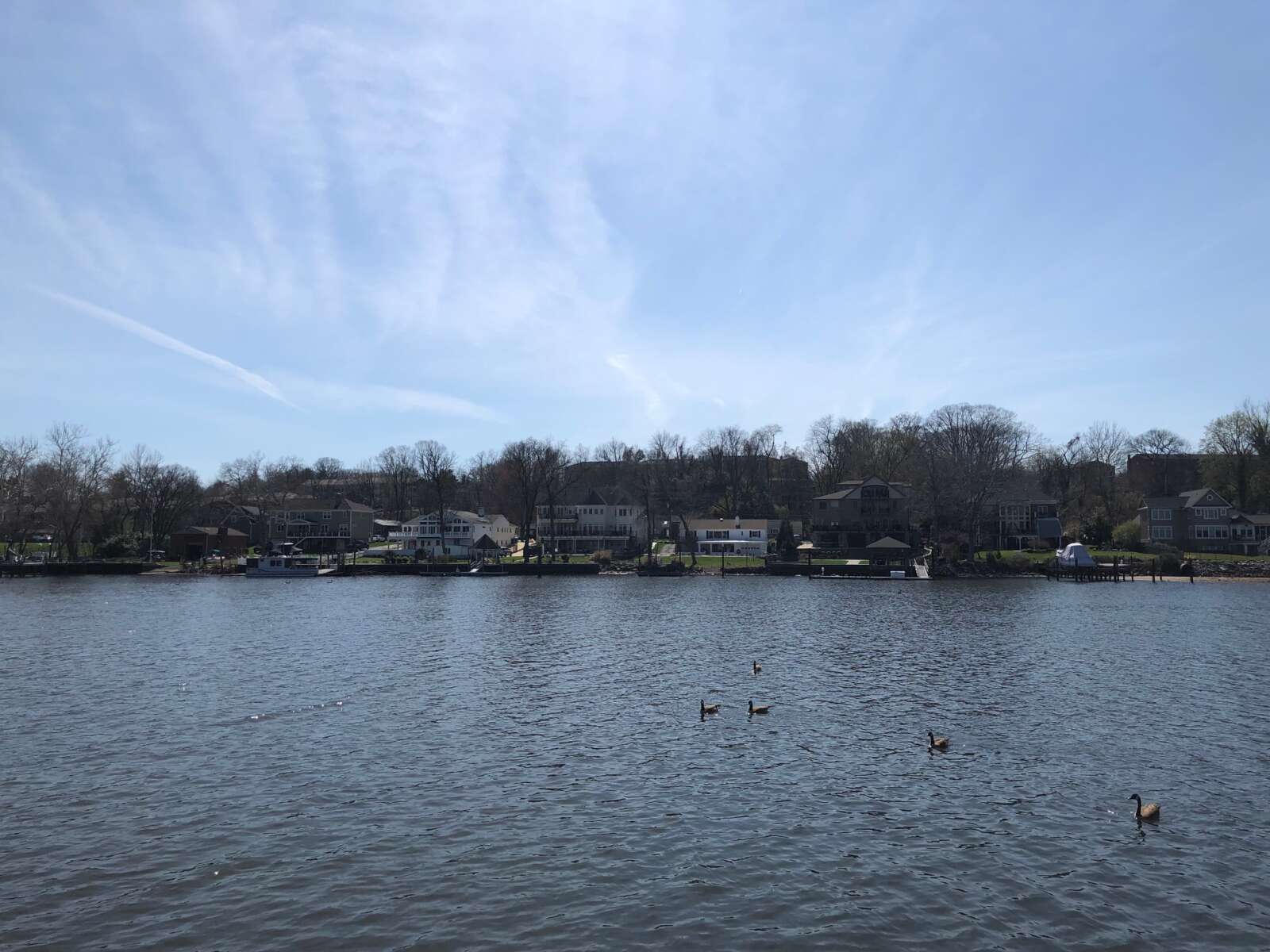
A committee in the Virginia House of Delegates on Friday advanced to the House floor a bill that would require localities to conduct water studies prior to approving data centers.
The bill, introduced by Del. Josh Thomas, a freshman Democrat who represents western Prince William County in the 21st District, would encourage local governments undergo site assessment to examine the effect of data centers on water usage, carbon emissions and agricultural resources.
Groups in Northern Virginia have long called for water studies to be conducted at the sites of proposed data centers, which use large amounts of liquid to cool the thousands of computers found within.
Data centers’ impact on local water sources was most notably questioned prior to the recent approval of the PW Digital Gateway tech corridor when the Fairfax County Water Authority sent a letter to Prince William County officials in 2022 asking that one be performed. To the dismay of anti-data center activists and environmental advocates, the county never performed a comprehensive study of the potential impacts on water quality in the Occoquan Reservoir from the Digital Gateway.
“This vote is a wake-up call to the data center industry,” Thomas said in a statement. The citizens of the Commonwealth, especially those in western Prince William County, have demanded more transparency in the data center siting process, and this bill is a critical first step. HB338 will encourage localities to analyze the impact of data centers on the community before projects are approved – not after.”
He continued, “While these centers can be an important source of tax revenue for localities, we cannot allow unrestrained development to harm our communities. I’m pleased to see that the General Assembly is weighing in on the issue of data center development. My colleagues and I will continue to push this legislation all the way to the Governor’s desk.”
The House Counties, Cities, and Towns Committee on Friday sent the bill to the House floor for a vote. Should the House approve the legislation, the Virginia Senate and Republican Gov. Glenn Youngkin must also sign off for it to become law.
Del. Ian Lovejoy, a Republican member of the committee who represents western Prince William, voted in favor of reporting the bill to the House floor.
“As co-patron of HB338 I was happy to see it move forward,” Lovejoy said in a text message. “As we await the outcome of the data center [study], any incremental gain in adding reasonable accountability to the data center siting process in a win.”
Democratic Sen. Danica Roem, a data center critic who also represents western Prince William and is a patron of the bill, also called the legislation a “win” and a step toward encouraging “local governments to complete work on application reviews prior to voting.”
Roem continued, “My hope is that this will lead our new Board of County Supervisors and staff to work collaboratively together to serve the best interests of Prince William County residents. This is the first step on the road to reform.”
Other Northern Virginia Democrats who are patrons of the bill championed its advancement to the House floor.
“The most important thing about sustainable development is to listen to our communities, and this bill makes progress in ensuring that big businesses listen to our communities as they develop technologies for the 21st century,” Democratic Del. Dan Helmer of Fairfax said in a news release from Thomas’ office. “We’re proud to be working with leaders at the local, state, and federal level to protect our climate and ensure our communities are heard.”
Del. Kannan Srinivasan, a Loudoun County Democrat, underscored the importance of evaluating the environmental impacts of data centers. “I am excited to support my fellow classmate as a Chief Co-Patron on his bill,” Srinivasan said in the news release.
This article was written by FFXnow’s news partner InsideNoVa.com and republished with permission. Sign up for InsideNoVa.com’s free email subscription today.
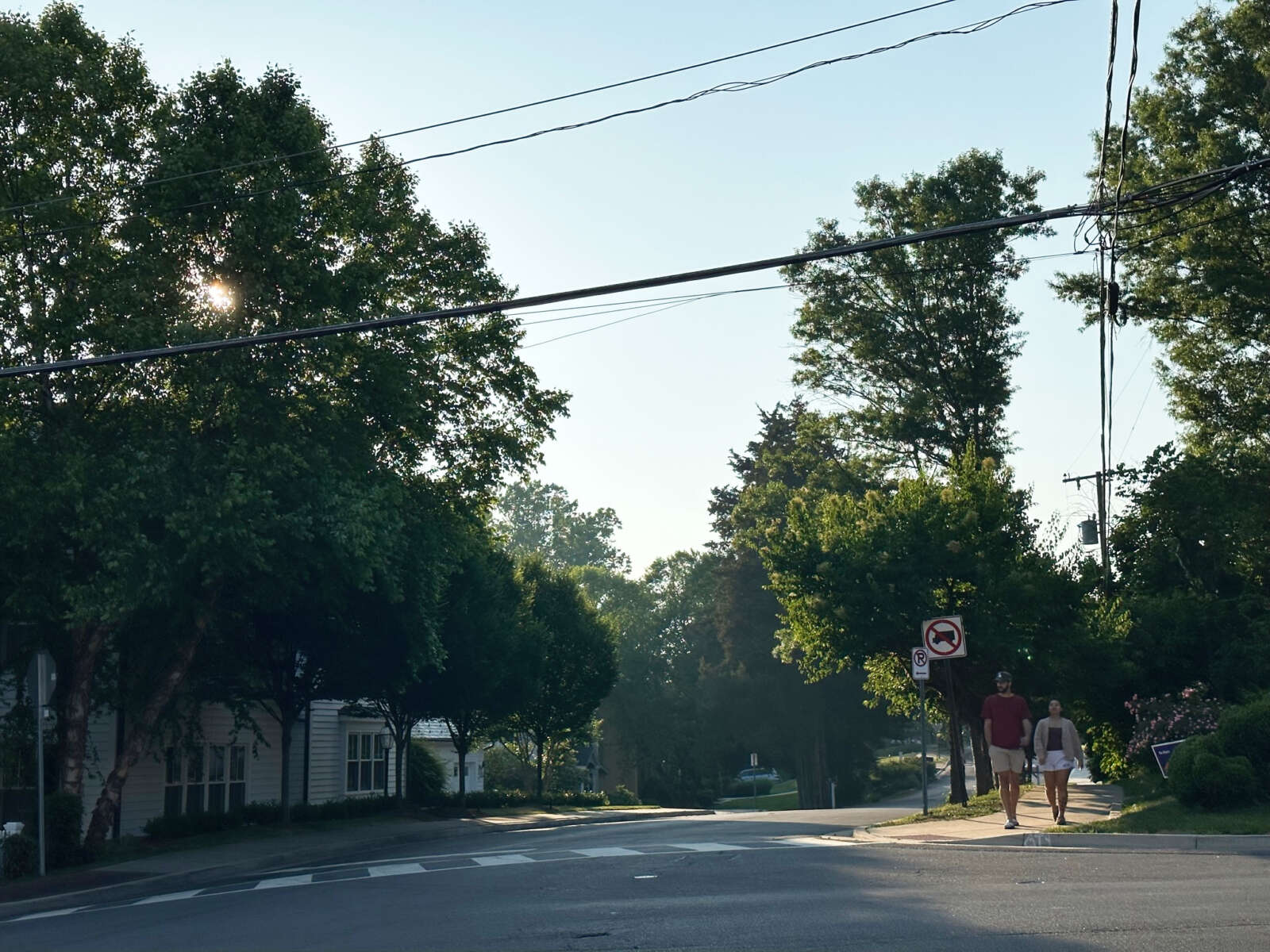
Future developers in Vienna may have half as much time to cultivate tree shade on their properties.
The Virginia State Senate recently passed legislation that would enable Vienna to adopt 10-year tree canopy requirements in place of the current 20-year time frame, getting the town a step closer to accomplishing one of its top priorities for the past couple of years.
Senate Bill 316 from Sen. Saddam Azlan Salim (D-37) passed the Senate 28-12 on Jan. 25 and now awaits a vote in the House of Delegates, which could send it to Gov. Glenn Youngkin.
“The Town of Vienna has made this a priority in their legislative agenda for the past few years,” Salim’s office told FFXnow. “Virginia is a Dillon Rule state, [meaning] localities are required to get permission from the state legislature to do things.”
An identical bill filed in the House by Del. Holly Seibold (D-12) got rolled into a larger bill dealing with tree preservation. Read before the full House for the first time yesterday (Tuesday), House Bill 1100 would let all localities require developers to conserve trees, an authority currently only available to Northern Virginia.
The Vienna Town Council has been advocating for the ability to strengthen its tree canopy rules for developers since at least 2017, but the issue took on new urgency after a 2022 study found that the town had lost 13% of its tree canopy in the past decade.
The request to amend state law so the town could offer credits for the preservation of medium and large trees or require developers to cover at least 20% of a lot with tree canopy in 10 years, rather than 20, topped the council’s legislative agenda for the General Assembly’s 2024 session.
Right now, the 10-year canopy requirement is only an option for Williamsburg City and localities like Fairfax County that had adopted the provision before 1990, according to the Town of Vienna.
In the legislative agenda, the town council also called for the option to protect trees notable for their age, species, size “or other special significance”:
Given the vital role that trees play in the protecting our urban environments, and their contributions to the local look and feel of neighborhoods, decisions over tree policies should be determined at the local level, reflecting the wishes of the local residents. Trees canopy requirements or incentives should also be included in acceptable best management practices for storm water management.
While Salim’s bill only addresses the time frame for developers, the Vienna Town Council is poised to adopt other tree preservation standards that it already has the authority to implement.
The proposed ordinances would increase the minimum tree-canopy requirement from 20% to 25% lot coverage, require developers to preserve trees when possible to meet their requirements, create a tree planting fund and replace the town’s tree board with an appointed commission.
The ordinances were expected to get a vote on Feb. 26, but the town council agreed on Monday (Feb. 5) to defer advertising their intended adoption, partly to see what happens with the state legislation and partly to give members more time to comment on the final draft.
Councilmember Chuck Anderson, who proposed the deferral, admitted he needed more time to read the ordinances after a separate bill to allow a casino in Tysons “sucked all the oxygen out of the room.” Vienna publicly opposed the casino bill, which was officially postponed to 2025 by the Senate’s finance committee yesterday (Tuesday).
“Since this is so important to me personally, I really want to spend some time looking at the final draft and to make sure it’s basically as good as possible,” Anderson said of the tree ordinances. “…I’m not looking for major changes at all, but I would just like one more shot at looking at this carefully before we enact this.”
The council will now vote on publicizing its intent to adopt the ordinances at its Feb. 26 meeting. The council’s first meeting after the required 10-day waiting period will be on March 18.
Vienna Parks and Recreation Department Director Leslie Herman and Town Attorney Steven Briglia confirmed to FFXnow that the outcome of the state legislation won’t affect the council’s ability to adopt its tree canopy preservation ordinances.
“Should the bill pass, and Vienna is allowed to require a 10-year time frame for tree canopy requirements, the newly adopted Town code amendments to the ordinance will need to be amended by the Council to reflect that change,” Herman said.

